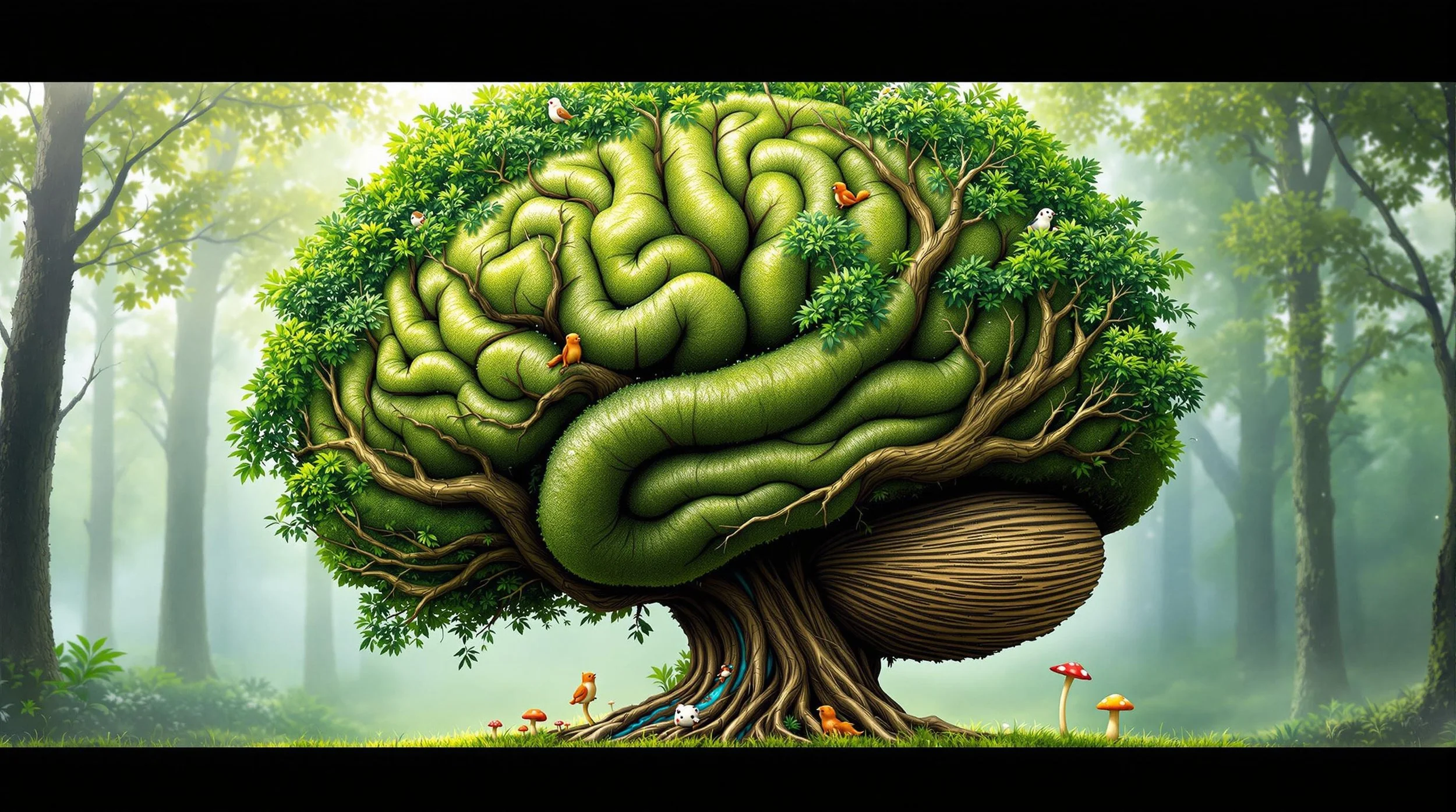Realistic Mindfulness: The Ancient Power of Pausing in a Chaotic World
Finding peace in the chaos
In the fast-paced, chaotic rhythm of modern life, the idea of mindfulness meditation can feel like an unattainable luxury. Many of us imagine mindfulness as sitting cross-legged in serene silence for hours, but for most people, carving out that kind of time feels impossible. Life is busy—work, family, responsibilities, and the constant hum of notifications leave little room for stillness.
But what if mindfulness didn’t have to be a grand, time-consuming practice? What if it could be as simple as pausing for a few seconds, taking a breath, and recognising where you are?
This small act of pausing—of stepping off the mental treadmill for just a moment—can have a profound impact on your brain and your wellbeing. It’s not about perfection or long hours of meditation; it’s about creating space, however small, to reconnect with yourself.
Ancient Wisdom Meets Modern Science
The power of pausing is not a new concept. Ancient traditions across cultures have long recognised the importance of stillness and reflection. Persian philosophies, for example, often emphasise the balance between action and contemplation, encouraging individuals to pause and reflect before making decisions. The poetry of Rumi and Hafez speaks to the transformative power of stillness, urging us to “be silent and listen” to the wisdom within. Indigenous cultures often emphasise the sacredness of pausing to connect with nature, honouring the cycles of the earth and the wisdom of silence. Similarly, Buddhist teachings highlight the transformative power of a single breath to anchor us in the present.
Modern science now validates what these ancient traditions have known for centuries. Psychology and neuroscience reveal that pausing activates the brain’s prefrontal cortex, the area responsible for decision-making, creativity, and emotional regulation. Chemistry shows how a mindful breath can lower cortisol levels, reducing stress. Even physics reminds us of the interconnectedness of all things, echoing the idea that a small pause can ripple outward, creating space for flexibility, connection, and growth.
The Brain as a Forest: Neuroplasticity and New Pathways
To understand the power of pausing, it helps to think of the brain as a forest. Imagine that your thoughts and behaviours are like trails through this forest. The more you walk a particular trail—say, the trail of stress or self-criticism—the more defined and automatic it becomes. Over time, it turns into a well-trodden highway, easy to follow but difficult to deviate from.
When you pause and choose a different response—like taking a breath instead of reacting with frustration—you’re stepping off the highway and onto a new, unmarked path. At first, this new path might feel unfamiliar, even uncomfortable. You might get “lost” or feel unsure of where it leads. But with practice, each step clears the way, and the path becomes easier to follow.
This is the essence of neuroplasticity: the brain’s ability to rewire itself by forming new neural connections. Every time you pause and choose a different response, you’re strengthening these new pathways. Over time, these small moments of mindfulness can reshape your brain, making it easier to respond with calm, clarity, and presence.
Practical Tips for Realistic Mindfulness
If you’re ready to start building new pathways in your brain, here are some simple, realistic ways to incorporate mindfulness into your daily life:
Start Small: Begin with just a few seconds of pausing. Take one deep breath and notice how it feels. You don’t need to set aside hours—just a moment is enough.
Anchor to Everyday Activities: Use daily routines as reminders to pause. For example, take a mindful breath while brushing your teeth, washing your hands, or waiting for the kettle to boil.
Notice Your Surroundings: When you feel overwhelmed, take a moment to look around. Notice the colours, shapes, and textures in your environment. This simple act of grounding can bring you back to the present moment.
Be Kind to Yourself: If your mind wanders or you forget to pause, that’s okay. Mindfulness is not about being perfect; it’s about showing up, again and again, with curiosity and compassion.
Celebrate Small Wins: Every time you pause, you’re creating a new pathway in your brain. Acknowledge and celebrate these small moments of mindfulness—they’re the building blocks of lasting change.
The Power of Small Steps
In a world that often feels overwhelming, it’s easy to dismiss small acts of mindfulness as insignificant. But these small steps are where transformation begins. Each pause, each breath, each moment of awareness is a step off the highway and onto a new path. Over time, these small moments accumulate, creating a life that feels more connected, creative, and flexible.
Mindfulness doesn’t have to be perfect or time-consuming. It’s about finding moments of stillness in the chaos, pausing to breathe, and remembering that even the smallest step can lead to profound change. So, take a moment now—pause, breathe, and notice where you are. You’ve already begun.



